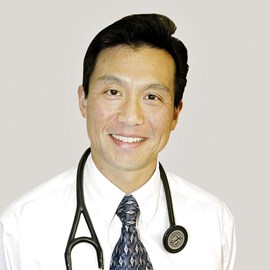The Douglas Park Community Centre has asked me back to speak at their Young at Heart program’s Wellness Show on Saturday, April 5. I’ll present Achieving Your Positive Potential in Life: Finding Meaning and Fulfilment in Every Stage of Your Life.
Now at the midpoint of life, I note our mixed messages about growth and aging and the changing connotations of “growing older.” Growing older is a good thing if you’re a child – getting taller and stronger, learning more and maturing.
Growing older is not quite as desirable to most past 40. They associate it with a loss of youth, vigour, opportunity and growth.
Every week, an older patient will tell me, “Don’t ever grow old.” I know that they are referring to the conditions we associate with advancing years: the chronic pain of osteoarthritis, the progression of multiple chronic conditions such as diabetes, atherosclerosis, and the decline in cardiac and kidney function.
Seniors are the frequent flyers in the health-care system because of their increasing needs, and for many, much of their days revolve around the scheduling of tests and appointments and the taking of multiple medications.
Yet growing older is not a downhill decline. Many of my patients age well and are ever happy with each passing year. They recognize the realities of their physical health, appreciate growth in their relationships, and remain engaged and empowered in every aspect of their daily lives.
They see through some of the myths of aging.
1. Myth: You are your age. This is only a partial truth. Your chronological age is based on the date of your birth. Different organs age at different rates depending on use, abuse and genetics. I have to remind some patients that although their knees may be worn down, their other joints are working like new. It’s also nice to point out to many that their kidneys and livers are functioning as if they were 20 years younger.
The cells of your body are constantly being renewed. The cells of your skin are continually being replaced. None of your red blood cells is over 120 days old.
2. Myth: You can’t teach an old dog new tricks. Although dementia is more likely as we age, it is not inevitable for most of us. There tends to be a decline in short-term memory with age.
Although we may have a gradual decline in the number of neurons in the brain in adulthood, it is the connections between neurons that influence cognitive function. In the process of neuroplasticity, with new experiences and new learning, each of us is capable of developing increasingly complex connections between neurons.
At any age, you could learn a new language, dance or musical instrument.
3. Myth: Becoming physically weak and inactive is inevitable.
Our bodies were meant to move. With disuse and inactivity, we lose strength, flexibility and balance. Daily physical activity, including walking, is a mainstay of continued fitness. Studies have demonstrated that seniors can increase both strength and muscle mass with safe resistance exercises, such as supervised seniors weight training programs.
If you’re a child, never stop growing up. If you’re an adult, never grow old. Instead, grow stronger, grow wiser, grow new interests and points of view, and grow in your relationships. Remain an active participant in the story of your life.
The Tapestry Foundation for Health Care is hosting a public forum, Dialogue on Aging.
I will be part of a panel moderated by writer Peter McKnight at 7 p.m. on Friday, April 4 at the Vancouver Convention Centre. With our topic Stories of Aging, we will share unique perspectives on aging. See more at www.tapestryfoundation.ca.
Dr. Davidicus Wong is a family physician. For more information about the Douglas Park Community Centre programs, call 604-257-8130.



